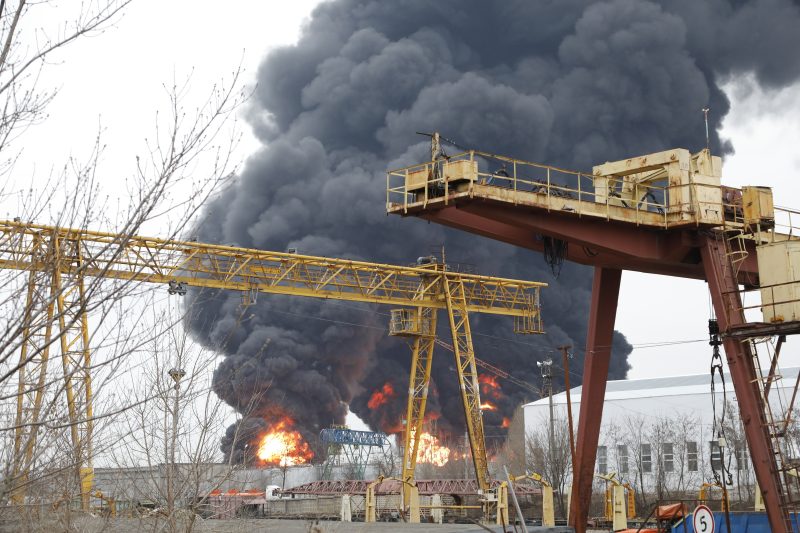In recent developments, Ukraine’s attacks on Russian oil refineries have escalated tensions not only with Russia but also with the United States, sparking concerns about potential implications for the already fragile geopolitical landscape. The strategic targeting of Russian oil refineries by Ukrainian forces marks a significant escalation in the ongoing conflict between the two nations, raising questions about the broader implications and potential consequences of such actions.
The attacks on Russian oil refineries come against the backdrop of a protracted conflict between Ukraine and Russia, stemming from Russia’s annexation of Crimea in 2014 and ongoing support for separatist rebels in eastern Ukraine. The decision by Ukraine to target Russian oil infrastructure represents a strategic shift in its approach to the conflict, signaling a willingness to escalate hostilities in pursuit of its objectives. This move has not only angered Russian authorities but has also drawn the attention of the United States, a key ally of Ukraine.
The targeting of Russian oil refineries is a calculated move by Ukraine to exert pressure on Russia and cripple its energy infrastructure. By disrupting Russia’s oil production and refining capabilities, Ukraine aims to weaken Russia’s economy and military capabilities, potentially forcing Moscow to reconsider its aggressive policies towards Ukraine. However, such actions risk triggering a broader conflict and drawing in international powers, including the United States, which has already expressed concerns about the situation.
The implications of Ukraine’s attacks on Russian oil refineries extend beyond the immediate physical damage to infrastructure. The move risks further escalating tensions between the two nations, pushing them closer to an all-out war with potentially catastrophic consequences for the region and beyond. The United States, in its role as a key ally of Ukraine, faces a delicate balancing act in supporting Ukraine’s actions while also seeking to prevent a larger conflict that could destabilize the entire region.
Moreover, the attacks on Russian oil refineries highlight the vulnerability of critical energy infrastructure to military conflicts and raise concerns about the potential for similar attacks in other parts of the world. The disruption of oil supplies could have far-reaching economic consequences, impacting global energy markets and leading to price volatility that could affect consumers worldwide. This serves as a sobering reminder of the interconnected nature of the global energy system and the risks associated with geopolitical conflicts.
In conclusion, Ukraine’s attacks on Russian oil refineries represent a dangerous escalation in the conflict between the two nations, deepening tensions not only with Russia but also with the United States. The strategic targeting of Russian energy infrastructure raises concerns about the broader implications for regional stability and global energy security. As the situation continues to evolve, it remains imperative for all parties involved to exercise restraint and seek diplomatic solutions to prevent further escalation and mitigate the risks of a broader conflict with catastrophic consequences.



























